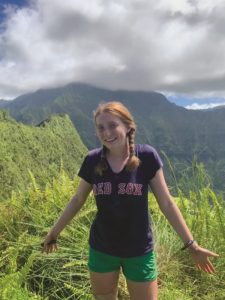
Nora Markey
Springfield, Mass.
Wesleyan University, Class of 2023
English and environmental studies
Last week, I floated down the Pamet River, tugged along by the cool current as the tide went out. Lush green hills and saltbox houses passed in my periphery, creating the perfect backdrop. It was utopia — if I didn’t think too hard.
I was curious about the ecosystem lurking beneath the shade of the pitch pines, but signs lining the shore warned: “Private Property, Keep Off!” Luckily, I knew the owners of a swath of the greenery and could count on spending time among those particular trees.
I pondered my good fortune. How many people would never float in the public waters of the Pamet or find their way to the National Seashore because finding a place to stay on the Cape is just too expensive?
I grew up spending a week here every summer. But since arriving for this fellowship two weeks ago, I’ve learned of tensions surrounding affordable housing and of worries about preserving the picturesque houses and hills.
A few other things I’ve learned — old hat to locals, but new to me: Corn Hill got its name after Europeans raided the Nauset tribe’s stash of corn. And how the Wampanoag lost the land they called home. Then came Truro, the fishing village, with forests to log. And Truro now, a quaint beach town with a handful of year-rounders and a young forest that has grown up in place of the trees logged years ago.
I am interested in developing a sense of place wherever I am. I think that starts with seeking a deeper understanding of hidden histories, ecologies, and politics.
Summer jobs and grants have allowed me to try that in some interesting places. Last summer, I worked on a farm in Hawaii and came upon crumbling graves and mango groves — evidence of previous inhabitants, Polynesian settlers. The summer before, living in rural Tennessee, my farm hosts taught me old Appalachian ways of living off the land. We canned and fermented vegetables for the winter months.
This summer, as a fellow at the Indie, I am excited to deepen my engagement with the Outer Cape and test the role of journalism in creating a sense of place.
The way I see it, every committee meeting, concert, and farmers market shapes the evolution of this place. I hope to contribute the kind of accurate, well-sourced information that will help people be more connected and responsible and keep the community vibrant.



